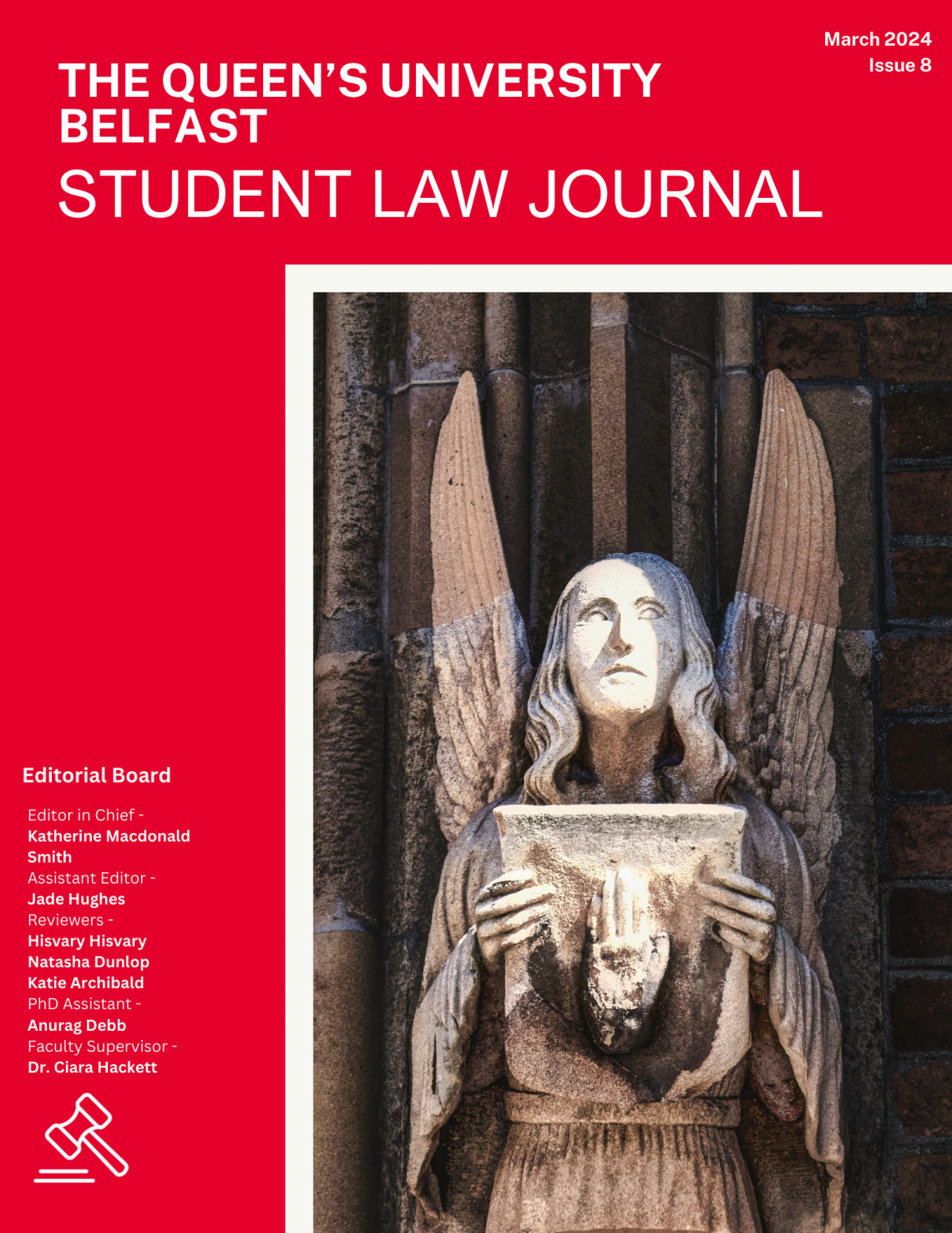QUBSLJ Issue Eight
8th March 2024I am delighted to present the Eighth Issue of the Queen’s University Belfast student Law Journal and the first issue of 2024. It has been a pleasure to reinstate the journal from its hiatus since 2021 and to be able to build upon the foundations diligently created by our alumni at the law school. Our mission at the QUBSLJ is to provide a platform for excellent undergraduate legal writing and to increase the reach and audience of undergraduate scholarship. I am pleased to say that the submissions we received from across the law school at Queen’s were outstanding in both…
What are the principle arguments advanced by the Non-Human Rights Project (NHRP) for recognition of animal personhood?
By Domhnall Lynam, Queen’s University Belfast The Non-Human Rights Project (NHRP) pioneered by the eminent human rights lawyer Steven Wise argues for the recognition of animal personhood; that animals should be granted legal personhood, which is the capacity to exercise…
The Deficiency in Defamation Laws in Northern Ireland and the Protection of Human Rights
By Alyssa Andrade Palmieri , Queen’s University Belfast Modern society is continuously evolving to accommodate an ever-changing mindset. With this, it is essential for the law to reflect these changes accurately, and more importantly, to reform the law to suit the…
A Critical Examination of the Key Legal Issues Raised by the Case of Henrietta Lacks and Johns Hopkins Hospital
By Eli Baxter, Queen’s University Belfast Introduction In 1951 an ordinary cancer biopsy led to a remarkable discovery. Researchers at Johns Hopkins observed that the cells harvested from a cervical tumour were immortal, dividing ad infinitum in culture. However, the…
Assessing the efficacy of the statutory homelessness system in England and Wales: do the conspicuous barriers to aid curtail its usefulness in tackling homelessness?
By Stuart Redpath, Queen’s University Belfast Amidst the backdrop of systematic welfare retrenchment and escalating living costs, homelessness remains one of the leading sociological issues of our time. Indeed, all enumerated forms of homelessness in England have escalated between 2010…
A Victory for Innovative Employees? – Shanks v Unilever Plc (Case Comment)
By Tina Ye, Queen’s University Belfast The Supreme Court decision for Shanks v Unilever plc[1] galvanised a series of journal headlines such as “sweet smell of success”[2] and “opening [of] the floodgates”[3]. Indeed, the overturning of lower court decisions and…
ABLE BUT UNWILLING: THE PRINCIPLE OF COMPLEMENTARITY AS A SAFEGUARD OF AMERICAN SOVEREIGNTY IN THE INTERNATIONAL CRIMINAL COURT’S QUEST TO END IMPUNITY
By Shannon Hale LL.B., Queen’s University Belfast Introduction The International Criminal Court’s (“ICC”) investigation into alleged war crimes in Afghanistan infringes on American sovereignty insofar as the United States has not consented to the Court’s jurisdiction.[1] The position of the…
The Inheritance Provisions – An Affront to Testamentary Freedom?
By Ben Lafferty LL.B., Queen’s University Belfast This brief research piece will gauge the extent of the author’s agreement with the statement that; “Testamentary freedom is often regarded as the ‘first principle of the law of wills’. However, will-makers should…
Trump on Finance
By Morgan Hickman LL.B., Queen’s University Belfast The Trump campaign called for an overhaul of the regulation of finance in the United States, variously demanding the repeal of the Dodd-Frank act, the reinstatement of the Glass-Steagall act and significant deregulative…
Individual and Collective Reparations: Are They Effective Mechanisms To Remedy International Crime?
By Sinéad MacRory LL.B., Queen’s University Belfast Throughout the past 50+ years, society in Northern Ireland (NI), has been tore apart by international crime. During ‘The Troubles’, over 3,600 people were killed and 40,000-60,000 injured. Many were subjected to torture,…
Tackling Fake News: Causes, Implications & Responses
By Hannah Yeates LL.B., Queen’s University Belfast Abstract In recent months, the term ‘fake news’ has become a familiar one within the media. The widespread satirical use of the term has lead to a loss of its particular meaning as…
